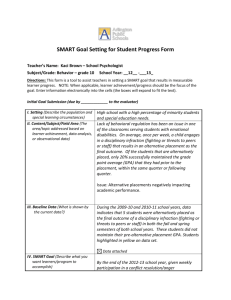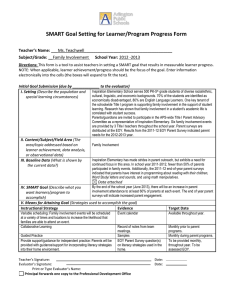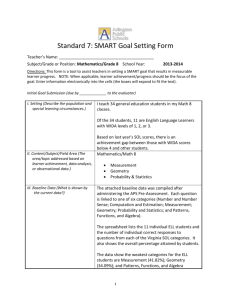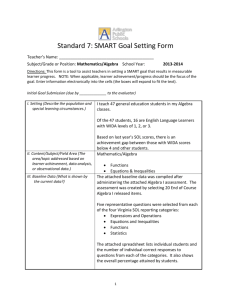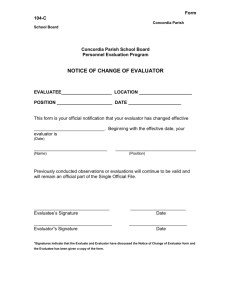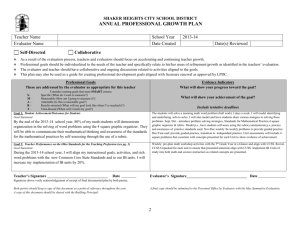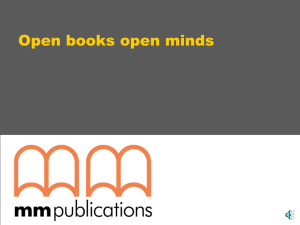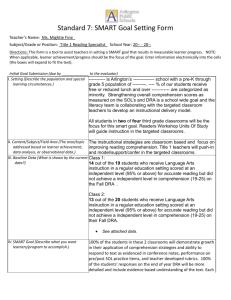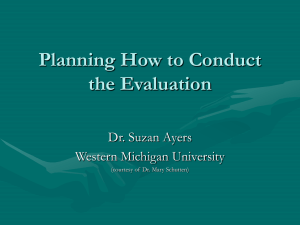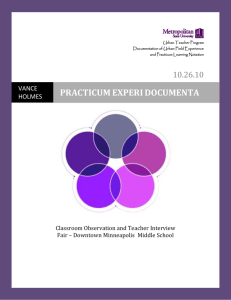SMART Goal Setting for Student Progress Form
advertisement
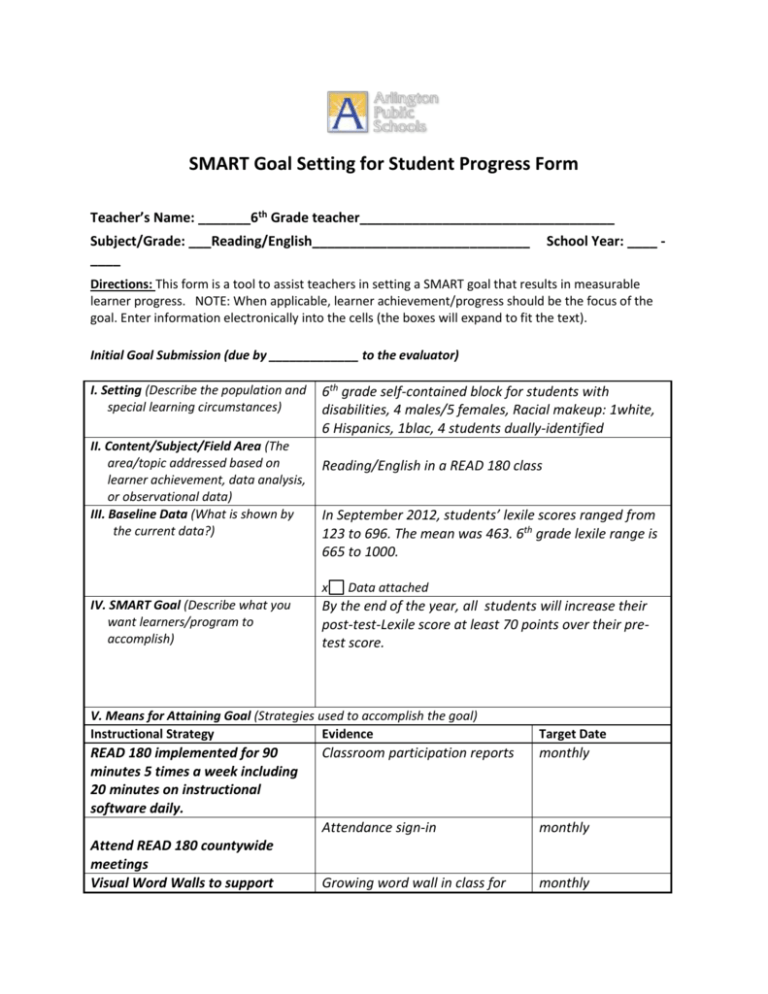
SMART Goal Setting for Student Progress Form Teacher’s Name: _______6th Grade teacher__________________________________ Subject/Grade: ___Reading/English_____________________________ ____ School Year: ____ - Directions: This form is a tool to assist teachers in setting a SMART goal that results in measurable learner progress. NOTE: When applicable, learner achievement/progress should be the focus of the goal. Enter information electronically into the cells (the boxes will expand to fit the text). Initial Goal Submission (due by _____________ to the evaluator) I. Setting (Describe the population and special learning circumstances) II. Content/Subject/Field Area (The area/topic addressed based on learner achievement, data analysis, or observational data) III. Baseline Data (What is shown by the current data?) 6th grade self-contained block for students with disabilities, 4 males/5 females, Racial makeup: 1white, 6 Hispanics, 1blac, 4 students dually-identified Reading/English in a READ 180 class In September 2012, students’ lexile scores ranged from 123 to 696. The mean was 463. 6th grade lexile range is 665 to 1000. x IV. SMART Goal (Describe what you want learners/program to accomplish) Data attached By the end of the year, all students will increase their post-test-Lexile score at least 70 points over their pretest score. V. Means for Attaining Goal (Strategies used to accomplish the goal) Instructional Strategy Evidence READ 180 implemented for 90 minutes 5 times a week including 20 minutes on instructional software daily. Attend READ 180 countywide meetings Visual Word Walls to support Target Date Classroom participation reports monthly Attendance sign-in monthly Growing word wall in class for monthly vocabulary for each workshop Use of sentence frames to support student discourse on vocabulary and discussion of text combined with a strategy to promote equitable participation of all students (ie: popsicle sticks) Student goals setting for software performance and number of independent books read Use of flexible grouping based on formative assessment to reteach areas of need and areas of enrichment each workshop Students will refer to sentence frames during class to represent their thinking and knowledge daily Monthly teacher/ student conferences to discuss progress monthly Flexible grouping and weekly regrouping, use of data to inform instruction Teacher’s Signature: Date: Evaluator’s Signature: Print or Type Evaluator’s Name: Date: Principal forwards one copy to the Professional Development Office
